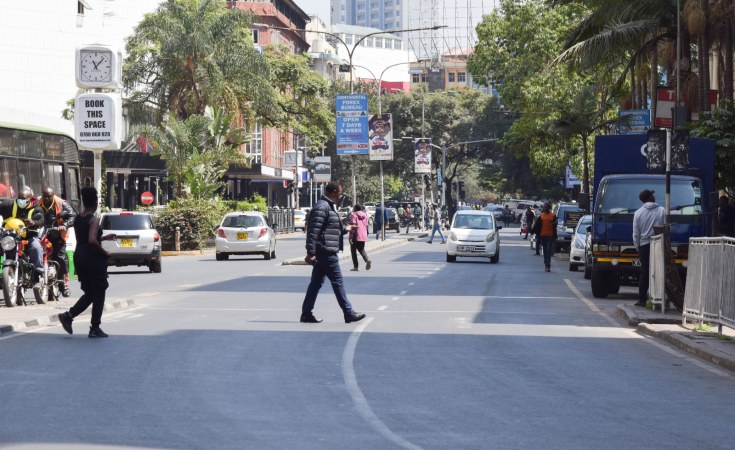Nairobi — Azimio leader Raila Odinga says Thursday protests will proceed as planned.
Odinga has urged Kenyans to continue fighting for their rights but condemned the arrest of at least nine Azimio leaders and other supporters rounded up in various towns.
"We will continue with our peaceful demonstrations as planned. But we will stop at 5pm today and resume tomorrow (Thursday) morning," he told the Daily Nation in a phone interview.
He asked his supporters to end Wednesday protests by 5pm.
Odinga confirmed that his bodyguard Maurice Ogeta had been freed by police and called for the release of at least nine Azimio leaders arrested during Wednesday protests.
Among those arrested in Embakasi East MP Babu Owino, Kilifi Senator Stewart Madzayo among others.
Dozens of Azimio supporters were also arrested in Nairobi, Mombasa, Nakuru and other towns as police fired tear gas at protesters who took to the streets in defiance of a government warning after earlier demonstrations turned violent with more than a dozen people killed in the past two weeks.
The opposition has vowed to stage three straight days of protests against President William Ruto's government, alarming the international community which has joined calls for a political solution to the crisis.
Schools and shops were closed in Nairobi and the opposition bastions of Mombasa and Kisumu, with small groups of mostly young men setting fire to tyres and engaging in running battles with police.
Police fired tear gas at scattered groups of demonstrators in Nairobi's Kibera slum and the towns of Homa Bay, Kisii and Migori, all Odinga strongholds, while offices in the capital's business district were largely shuttered.
It is the third time this month that Odinga has staged mass rallies against a government he says is illegitimate and to blame for a cost-of-living crisis.
The government in turn has accused the opposition of derailing efforts to improve Kenya's finances, with Foreign Minister Alfred Mutua on Wednesday dismissing the demonstrations as the work of "economic saboteurs disguised as protests against the cost of living".
- 'Wrong direction' -
In previous rallies, police used not just tear gas but live rounds to disperse stone-throwing protesters, drawing accusations of heavy-handedness from civil groups.
On the eve of Wednesday's demonstration, police described the protests as a "threat to national security" and the government declared it would not allow lawlessness to go unchecked.
"Anyone planning to unleash violence on Kenyans is hereby warned to cease and desist," said Interior Minister Kithure Kindiki, adding that all available security resources had been deployed to maintain order.
The demonstrations have divided Kenyans, who are struggling to cope with high inflation and a jobs crisis.
- 'Resolve differences' -
Ruto, a former deputy president, rose to the top job after winning a narrow election victory last August over Odinga, who claimed the vote was "stolen".
But he took office as Kenya's economy reeled from debt and soaring inflation, and was criticised for raising taxes despite campaigning to bring prices down.
Kenya is seen as a stable democracy in the often-turbulent East Africa region, and 13 western nations issued a joint statement on Tuesday expressing concern over the violence in recent demonstrations.
"We... urge all parties to table their concerns through a meaningful dialogue and resolve their differences peacefully to build the nation together, ensuring no further loss of life," the foreign missions said.
Each day of protest costs the economy an average of three billion shillings ($21.8 million), according to an estimate by the Kenya Private Sector Alliance.
The National Cohesion and Integration Commission, a state agency, reported incidents of ethnically-motivated violence during last week's protests, and warned that gangs were using the chaos to target innocent people.
Human Rights Watch on Tuesday said Kenya had an obligation to protect the right of citizens to protest peacefully and condemned the police response in earlier demonstrations.
Odinga called off earlier anti-government demonstrations after Ruto agreed to dialogue, but the talks broke down.
Opposition protests following Odinga's election loss in 2017 continued until he brokered a surprise pact with his erstwhile foe, former president Uhuru Kenyatta, that became known as "the handshake".
[Additional reporting by AFP].


